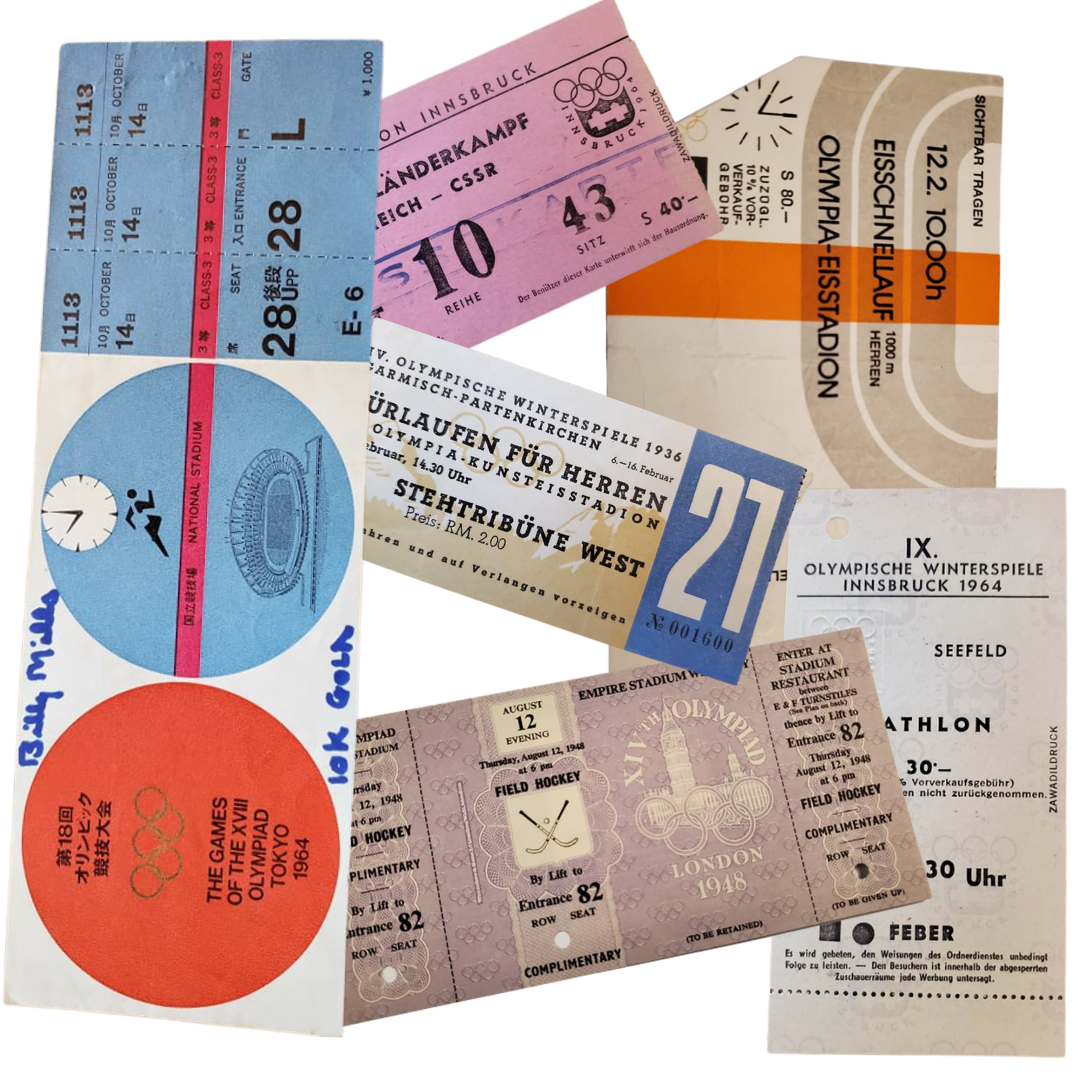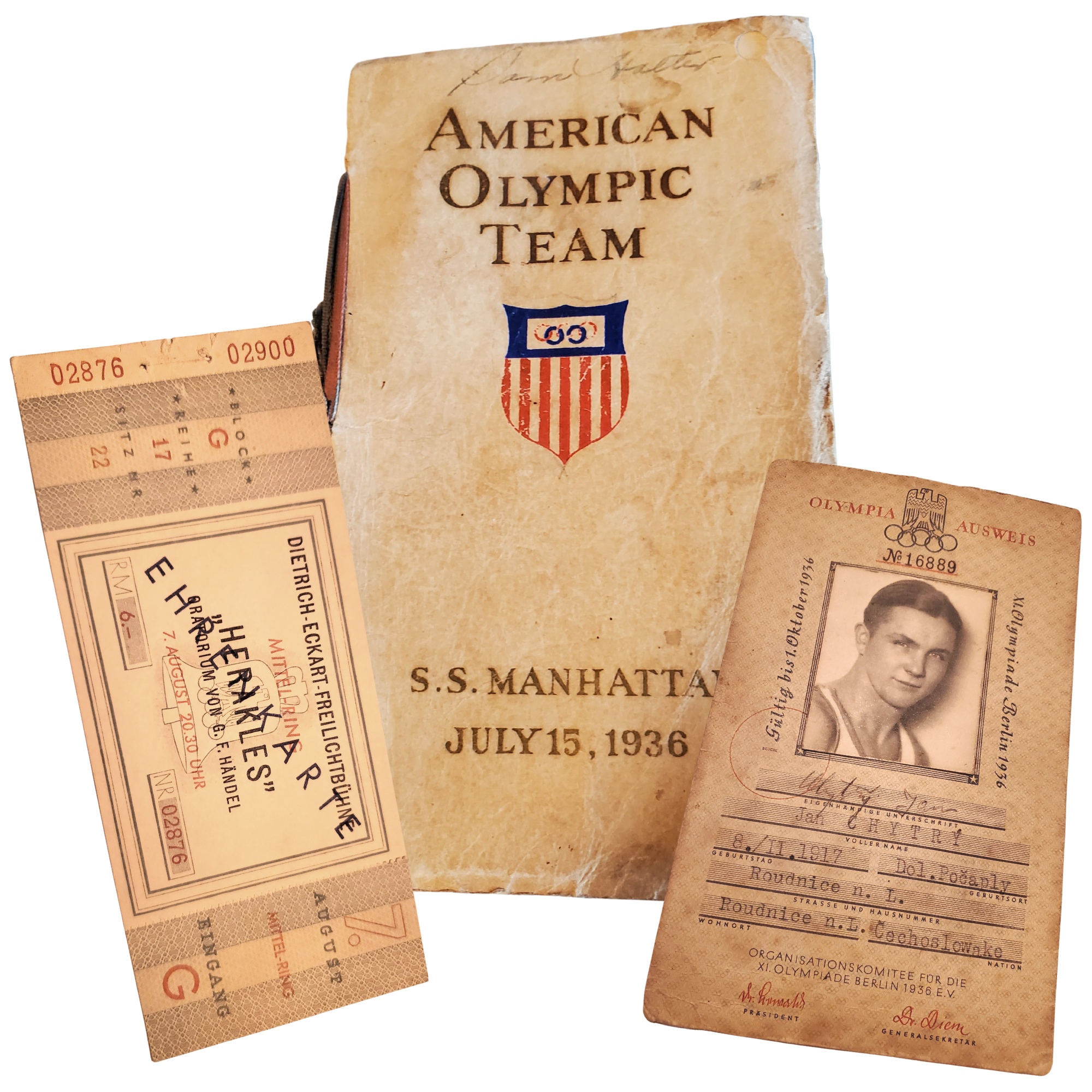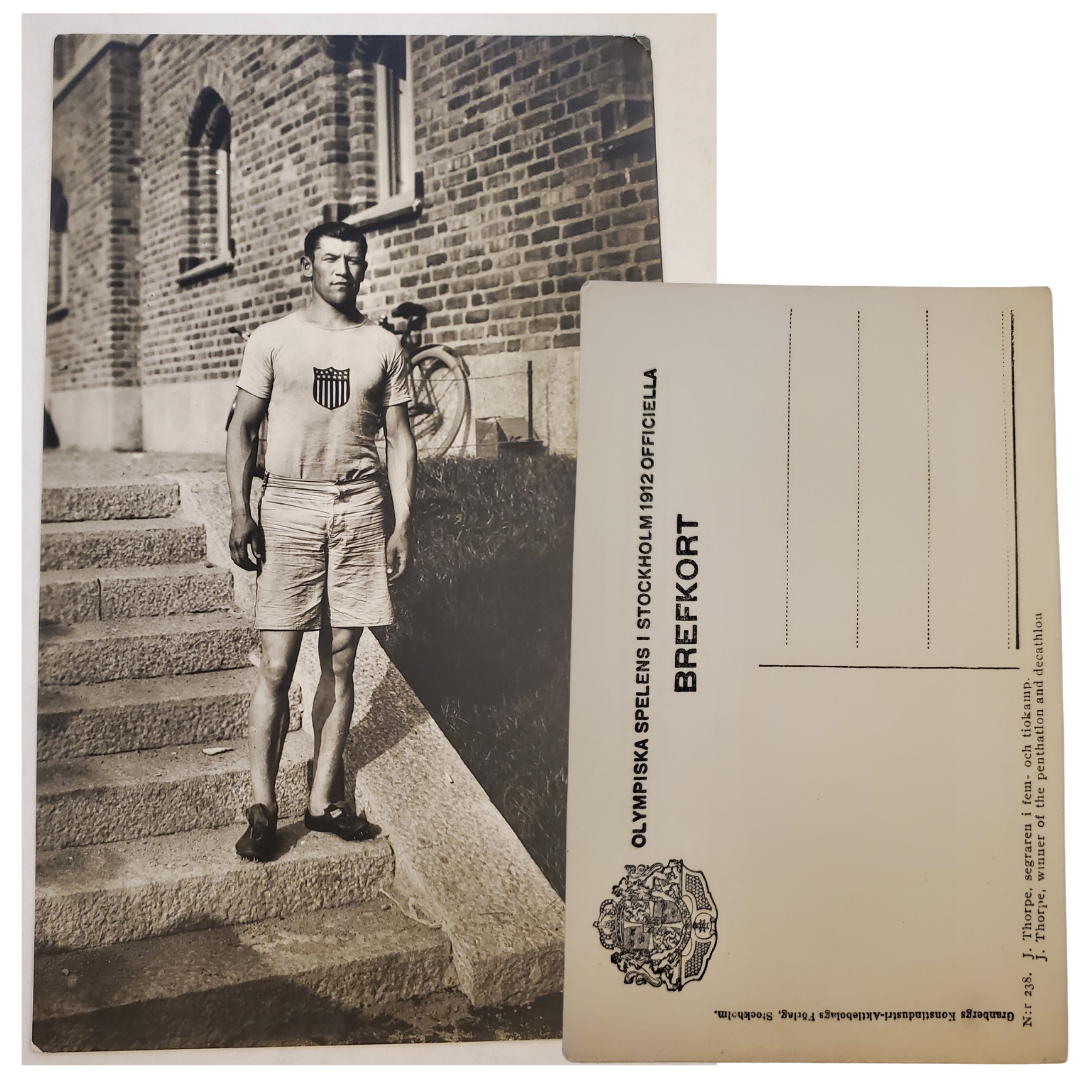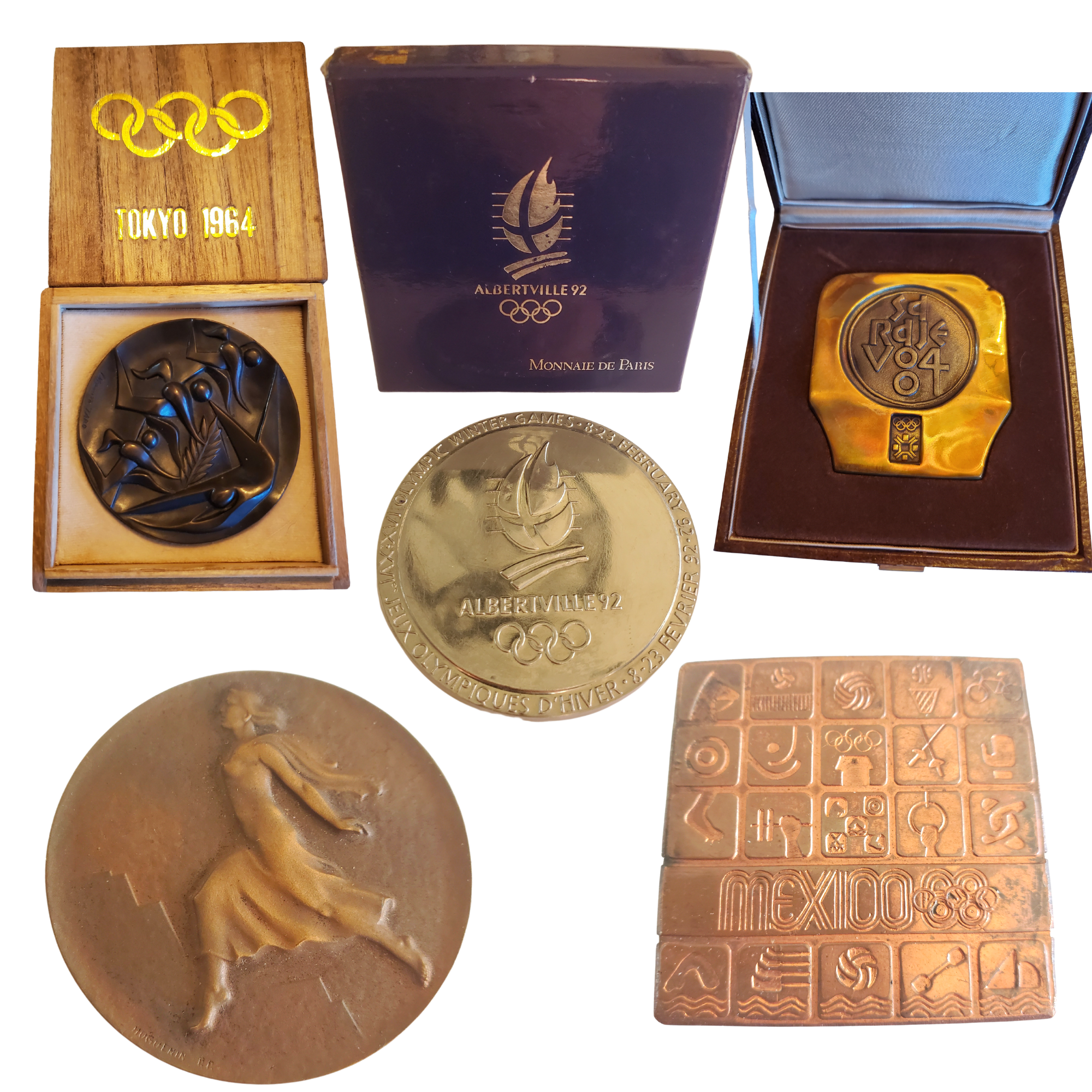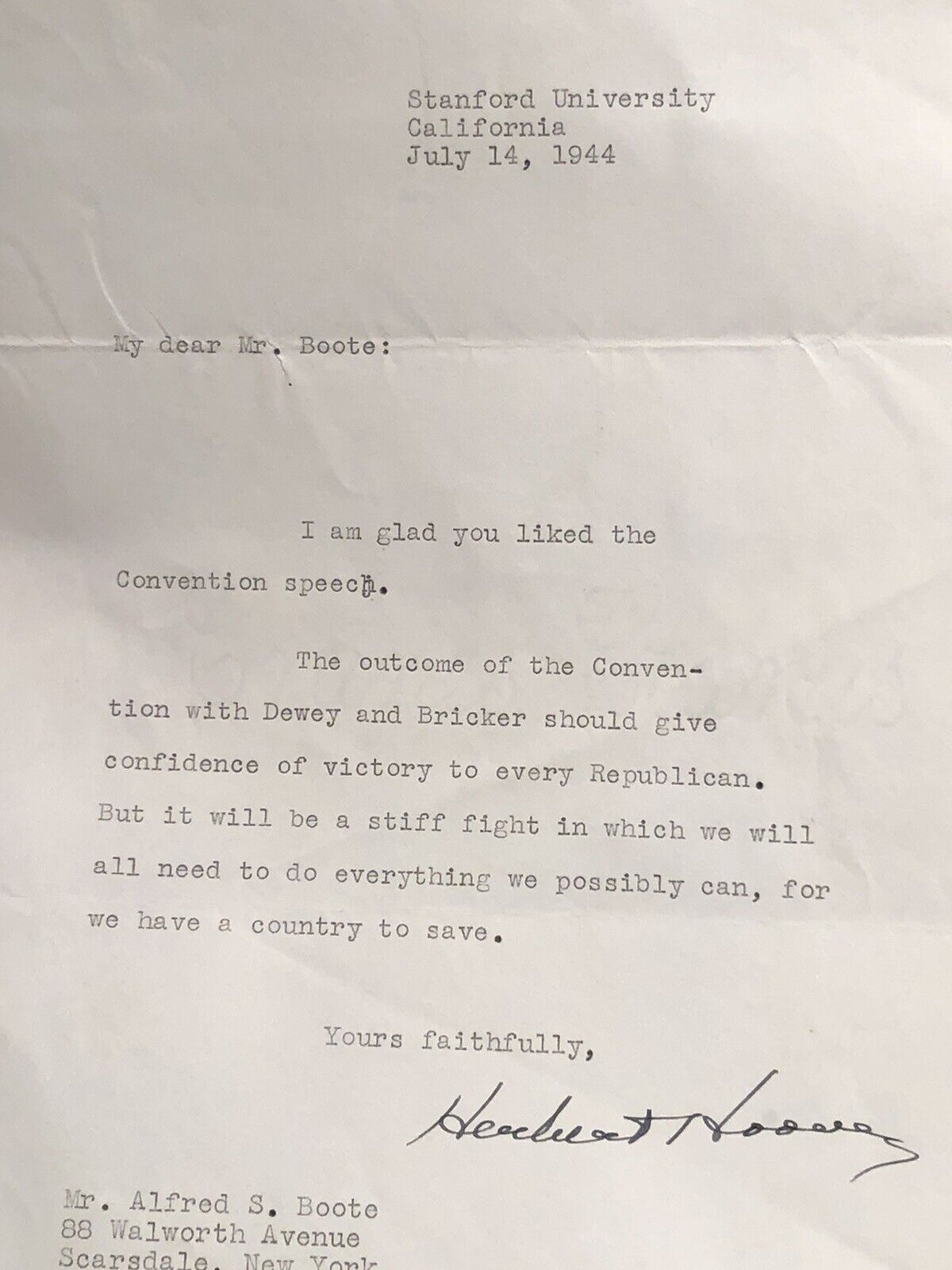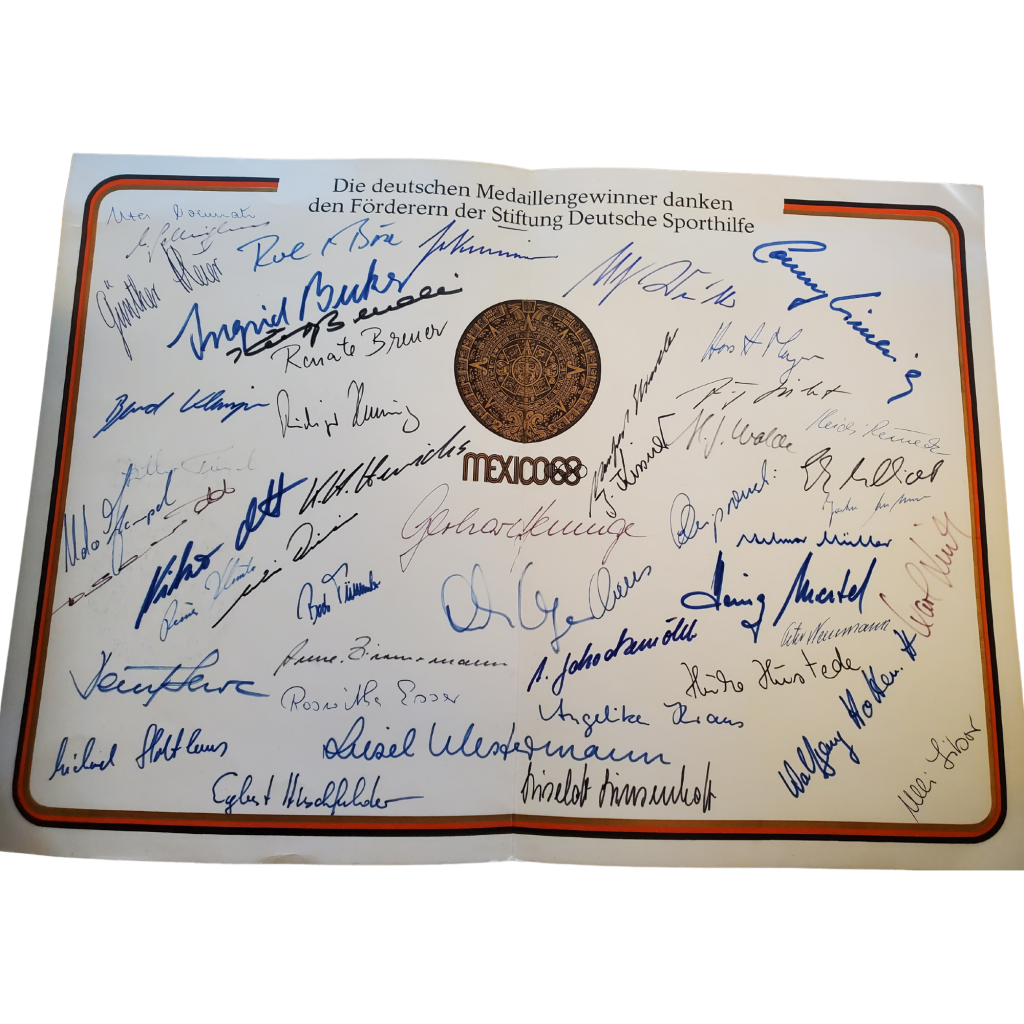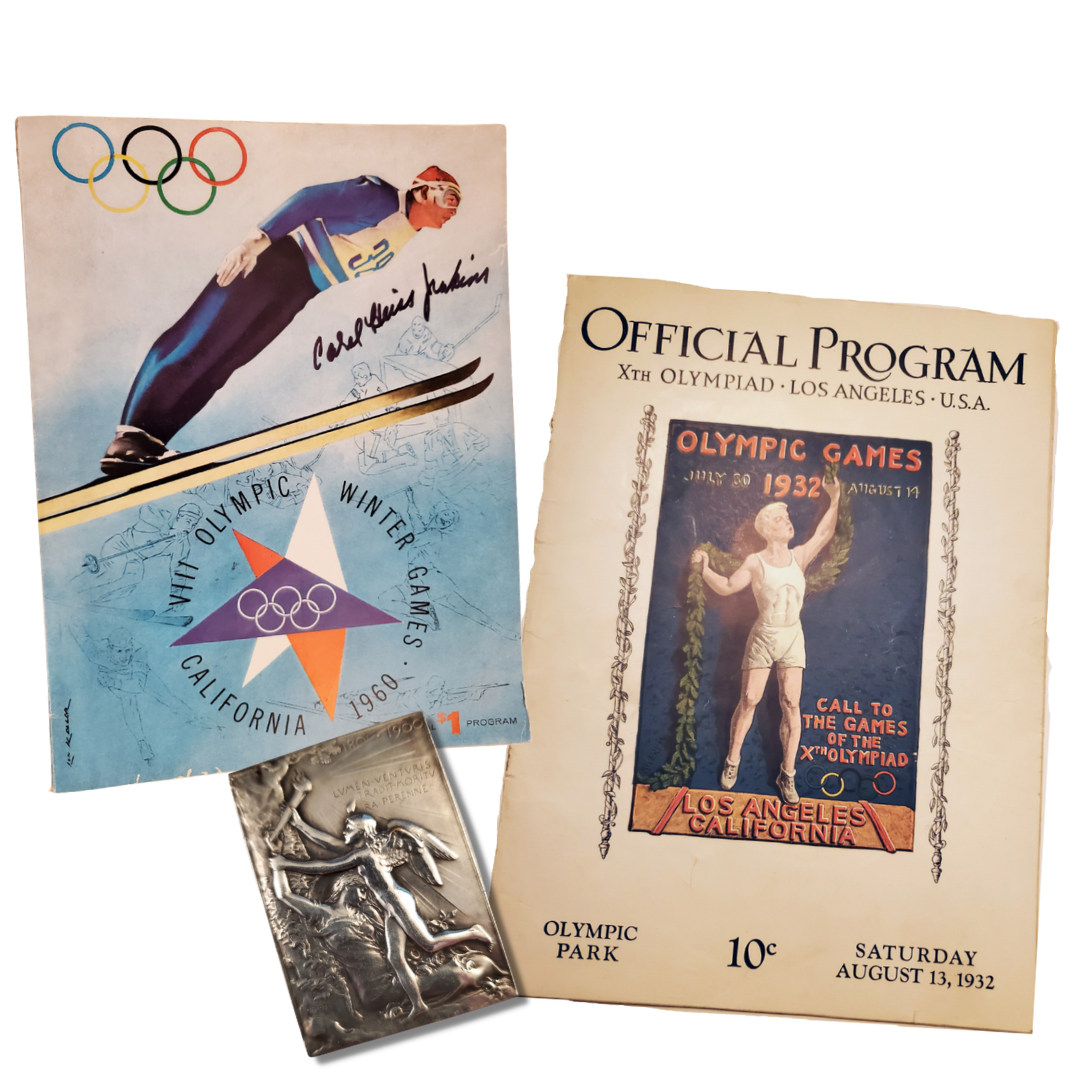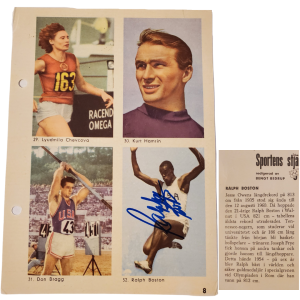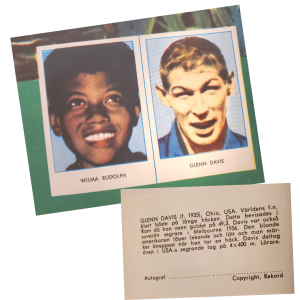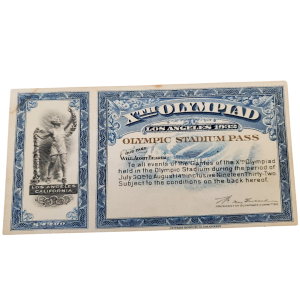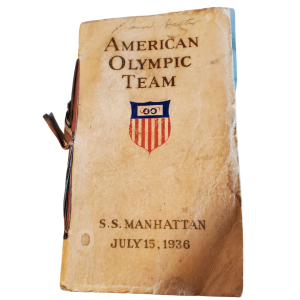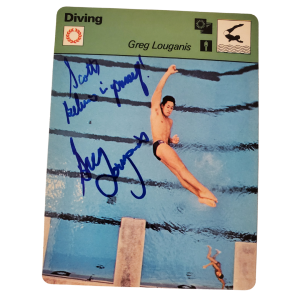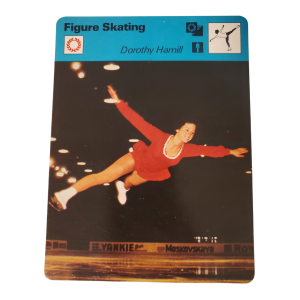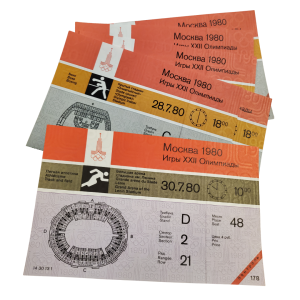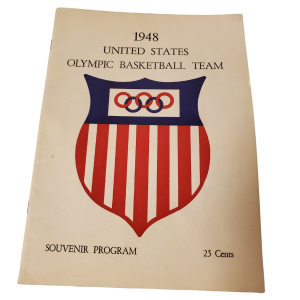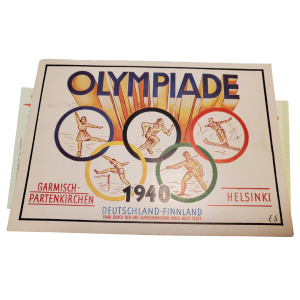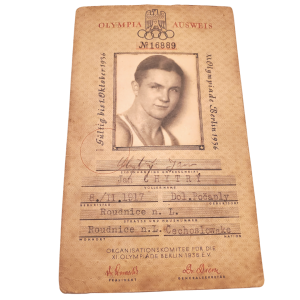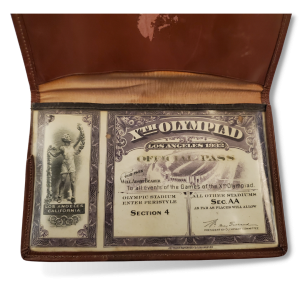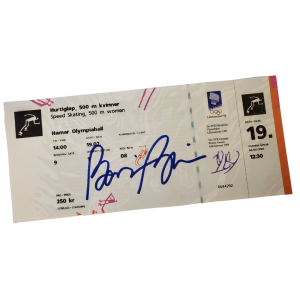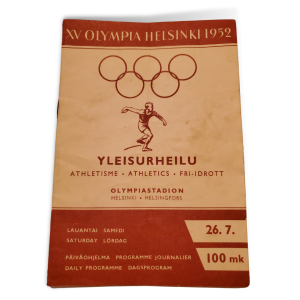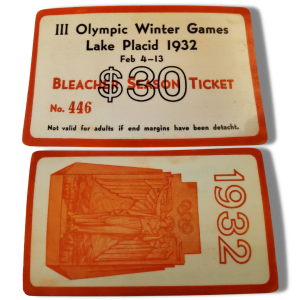Full Run of Olympics Tickets
A collection in process, this collection shows a full-run of Olympics tickets - at least one from each event. Starting in 1896 and including both summer and winter Olympics events. Priority given to tickets that are for finals matches where a US Olympian won Gold.
1936 Berlin Olympics
Berlin's 1936 Olympic moment came at a critical time when the world was bracing for what would become WW2. The games were the most promoted, ticketed and televised games in history. The Torch relay was invented and Jesse Owens upset the German elite athletes. This collection includes tickets, ID cards, Jesse Owens signed documents and other unique items such as the SS Manhattan Athlete Program given to the 300 members that sailed to Berlin from the US.
Pacific NW History
Historical documents and signatures featured from the NW. This collection includes important namesakes from the Portland, Oregon and Vancouver, Washington area. Fort. Vancouver, Oregon and Washington Territories, and Civil War generals that influenced the Pacific Northwest.
US Olympic Hall of Fame Rookies
The US Olympic Hall of Fame has 119 individual Olympians and Paralympians, 11 teams, five coaches and 19 special contributors. This collection contains the rookie card for each of the individual Olympians. Currently also a work in progress & signed if possible.
Olympics Participation Medals
Our growing collection of participation medals from various Olympics includes both rare and common medals. We typically only include Athlete participation medals unless otherwise noted. Many medals are quite heavy and made from rarer and valuable medals. We seek to find medals with their original box where possible. Local artisans are called upon to create the designs for the medals and earlier medals typically represent famous works.
Presidental Letters & Signatures
This collection of presidential letters and signatures seeks to show interesting and important documents from United States President's lives.
Multi-Signed Olympics Documents
Truly telling a story, collections of signatures from various Olympics years and events, these documents are a rare glimpse into the events and the athletes. Several documents include valuable and early examples of Olympian signatures.
Olympics Programs
Just like tickets, Olympics programs are filled with artistic value and interest - many include cover art by prominent artists or photographers of the host country. The more recent programs are filled with interesting industry ads and features about Olympians from the previous years.
Learn More About The Olympics
What sports are in the Olympics?
The Olympic Games, which occur every four years, feature athletes from across the globe competing in a variety of sports. Different types of athletics are included in the Olympics like ball sports such as soccer and basketball; sports that involve sticks like hockey and lacrosse; water sports such as swimming and synchronized swimming; court sports like tennis and badminton. There are even combat sports such as judo and boxing. Each sport is unique in its own right with equipment specific to said sport as well its individual rules and regulations tailored to the game. Athletes from all countries come together to compete for the glory of winning an Olympic medal.
How do athletes qualify for the Olympics?
Qualifying for the Olympic Games is an arduous process for any athlete. Every sport has a set of criteria and guidelines all athletes must fulfill in order to qualify. For individual sports, players must meet a minimum score required from international events or be within the top ranking of international standings. For team sports, countries must qualify by coming within the top rankings of international competitions held prior to the Olympic games. Additionally, each National Olympic Committee may select up to three athletes in an individual event without any restriction on performance level if their Championships have no Olympic Qualification opportunity. All delays and postponements due to COVID-19 will have an effect on how qualifications are met, especially since many international competitions this year have been cancelled or postponed. However, it's expected that organizations like the International Olympic Committee will make adjustments to these criteria so that athletes around the world can still meet competitive standards even during this time of uncertainty.
How often are the Olympics held?
The Olympic Games are held every four years, alternating between the summer and winter events. This ancient tradition was first recorded in 776 BC in tribute to the Greek gods. With such an impressive heritage, it's no wonder that the Olympics remain one of the premier sports tournaments in the world. Over the years, nearly 10,000 athletes from over 200 countries have gathered for a chance to represent their home nations on this most coveted stage. As we approach 2021, many of us look forward with anticipation to what is sure to be another engaging international event.
How many athletes participate in the Olympics?
The Olympics are an impressive international event that sees participants from around the world compete in various sporting events. Every two years, hundreds of athletes from each participating country come together to represent their home countries on the world's stage. Although exact numbers vary depending on the Olympic games, generally speaking there are about 11,000 athletes who take part in the summer Olympics and 4,000 athletes for the winter Olympics. The incredible number of people who come from all walks of life - both professionally and geographically -and who share a common goal to compete at this level is truly awe-inspiring. It is no wonder that so many people tune in to watch these historic global games every two years.
What countries host the Olympics?
The Olympic Games are one of the most prestigious events in the world, with contestants from all around the globe. Over the years, many different countries have had the honor of hosting these quadrennial games, which bring together athletes, coaches and fans across a diverse array of sports. In recent history for summer Olympic Games, London (2012), Beijing (2008), Athens (2004), Sydney (2000) and Atlanta (1996) have welcomed competitors to their cities. For winter Olympic games, Sochi (2014), Vancouver (2010), Turin (2006), Salt Lake City (2002) and Nagano (1998) were chosen as the host locations. The next editions will take place in Tokyo in 2020 and Paris in 2024 - both cities that surely guarantee an exciting atmosphere!
What are the Paralympics?
The Paralympics are an important event in the sporting world. It is an international multi-sport competition involving athletes with disabilities, and a parallel component to the traditional Olympic Games. Originating in England during 1948, at the same time as the first post-World War II Olympics, these games have since grown to become one of the largest sports events in the world. All Paralympic Games feature athletes vying for gold medals and recognition, showing resilience and determination often greater than their able-bodied counterparts. The Paralympic Movement is dedicated to changing attitudes toward people with physical impairments so they are only seen as equal members of society and champions on the field. Ultimately, more than anything else, the Paralympics remind us that even those who face physical limitations due to disability can push themselves to unimagined heights of accomplishment.
